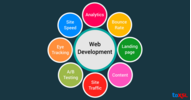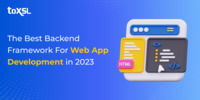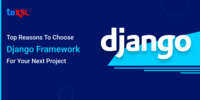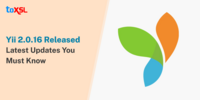- Mar 12, 2025
Share this post on:
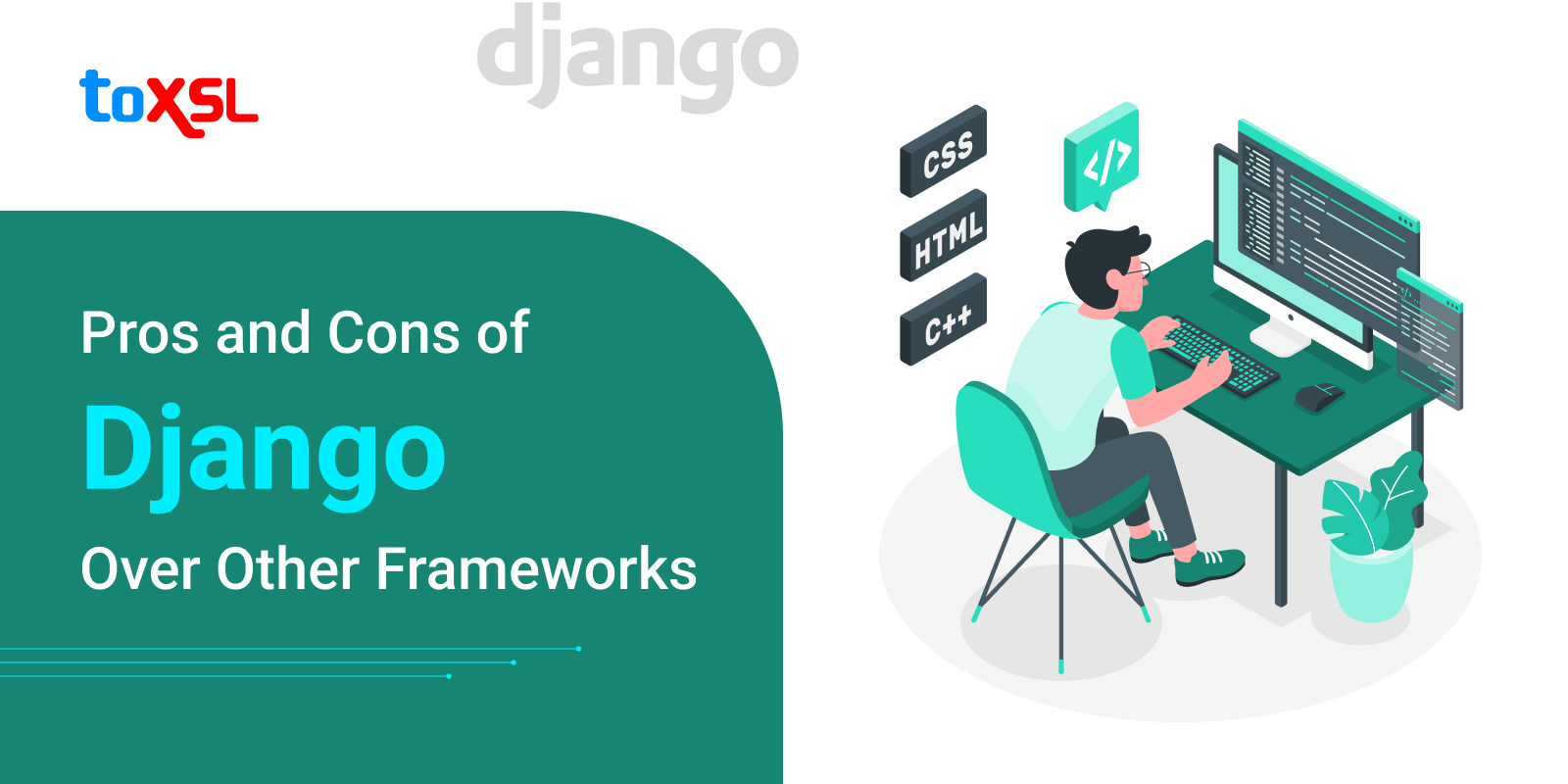
While creating custom web applications, many web developers prefer Python to other programming languages to take advantage of its simple and expressive syntax. The simple syntax rules of Python enable developers to disentangle the development and maintenance of web applications by keeping the code base concise and readable. However, Python is designed as a general-purpose programming language and needs built-in web development capabilities.
The developers require web frameworks to create custom web applications in Python quickly and efficiently. Every developer also has the choice to choose from an extensive variety of web frameworks for Python. According to the usage statistics posted on different sites, a huge number of Python developers lean towards Django over other web frameworks. As an open-source web framework, Django encourages developers to diminish overall web application development cost.
At the same time, Django empowers programmers to compose web applications as required by fluctuating business requirements. Also, Django, like other web frameworks, has its advantages and disadvantages. The web developers must comprehend the major advantages and disadvantages of Django to pick the correct Python web frameworks.
Major Advantages of Django:
- Easy to Understand: Django is one of the web frameworks which are written in the Python language. Hence, it becomes simpler for developers to develop web applications with clean, readable, and maintainable code by taking advantage of the syntax rules of Python. Also, the developers can easily diminish the development time by building custom web applications without writing extra code.
- Supports MVC Programming Paradigm: Django, like other modern web frameworks, supports the model-view-controller (MVC) design rule. The MVC programming paradigm enables developers to keep a web application's UI and business logic layers separated. The approach further helps developers to simplify and speed up the development of large web applications by separating their UI and business logic layers. Django additionally enables developers to reuse the same business logic across multiple projects.
- Compatible with Major Operating Systems: These days, users access web applications on different devices and platforms. Django enhances the accessibility of web applications by supporting major operating systems like Windows, Linux, and macOS. In the meantime, the ORM system given by Django makes it easier for developers to work with several widely used databases. They can even use the ORM system to perform regular database activities and migrate from one database to another without writing additional code.
- Robust Security Features: The built-in security features given by Django assist developers with protecting the web applications from a variety of targeted security attacks, including cross-site scripting, SQL injection, and cross-site request for forgery. At the same time, the web frameworks upgrade the security of web applications by preventing common security mistakes related to Python coding.
- Extendable and Scalable: Django has been evolving consistently to empower developers to construct better and modern web applications. At the same time, the Django developers can without much of a stretch modify, scale, and extend the web framework by rolling out improvements to its decoupled components. They even have the option to unplug or replace these decoupled components as indicated by the exact requirements of individual projects. In like manner, they can quicken the development of large and complex web applications by wiring up an extensive variety of components.
Major Disadvantages of Django:
- Impacts Performance of Small Web Applications: The powerful features offered by Django make it simpler for developers to develop large and complex web applications. However, the developers do not need some of these advanced features while developing small and simple web applications. The additional features even affect the execution of small web applications unfavorably. Henceforth, Python developers need to explore approaches to enhance the execution of small web applications while using Django.
- Cannot Handle Multiple Requests Simultaneously: Most web frameworks enhance the execution of web applications by making each process handle multiple requests at a time. However, Django, not at all like other modern web frameworks, does not empower individual processes to deal with various requests simultaneously. Hence, developers have to explore approaches to influence individual processes to deal with multiple requests proficiently and rapidly at once.
- Relies on ORM System: The ORM system given by Django makes it easier for developers to work with various databases and perform common database operations. However, the ORM system used by the web framework does not have robust features given by other widely used ORM systems. Also, it does not empower developers to take advantage of the robust Python SQL toolbox fully.
All in all, Django encourages developers to develop custom web applications in Python by providing several features, modules, and tools. Also, the web system has been evolving consistently to meet new web development patterns. At present, Django is being used by various high-traffic websites including Google, YouTube, Pinterest, and Instagram. However, Django, like other web frameworks, has its particular upsides and downsides.
Hence, the Python developers must remember the exact needs of each task while assessing the pros and cons of Django to pick the best Python web framework. They also need to execute the best practices in Django development to get the best out of the frameworks.





